When you are born into a family of top musicians, when you carry a celebrated surname that you need to justify, all that’s left for you to do is to show how you can go further… and better. Vasil Hadžimanov (47) has proven that with his talent and work. He graduated from Berklee after just three years of studies, instead of four, and has long been a star in the field of jazz music, especially ethno-jazz, while he also holds the title of the world’s best jazz pianist on the electric piano, which he secured in 2019!
It is a great joy when you have a son who’s declared the best jazz pianist in the world – said Vasil’s proud father, Zafir Hadžimanov, speaking recently. And Vasil was named after his grandfather, while his father was named Zafir after his own grandfather. Granddad Vasil was a master pharmacist, but he was better known as a great interpreter of Macedonian folk songs and an ethnomusicologist who preserved the precious legacy of folk music creativity. Father Zafir is today 77 years old and has behind him a rich career as an actor, singer, composer and poet. His mother, Senka Veletanlić, has long since retired from the stage, where she was one of the top performers of fun melodies. His aunt, Bisera Veletanlić, possesses one of the most valued and splendid voices of the local music scene.
Vasil is the author of numerous compositions that he performs with his Vasil Hadžimanov Band, which he founded back in 1997. His work is also dedicated to the fusing of the ethno music heritage of the Balkans and Western music sub-genres (jazz, funk, world music). The first album of the Vasil Hadžimanov Band was released in 2001. He also composes music for films and TV series. His signature as the author of the musical score marked the film When I Grow Up, I’ll Be a Kangaroo [Kad porastem biću kengur] and the TV series Basketball Players [Košarkaši] and Open Doors [Otvorena vrata].
Vasil’s childhood unfolded in New Belgrade’s Block 45:
“I recall the feeling that I get when I think of those days. The sense of security, happiness, well-being and peace. I really think that I had a wonderful childhood. I grew up in Block 45, which was then completely different. New parks and playgrounds. Lots of greenery. The promenade by the river. Pure pleasure.”
He was born and grew up aware of the fact that his parents were public figures. He accepted this from the earliest days of his childhood:
“Back then that didn’t come with as much pomp and fame as it does today. There were no tabloids, views, likes, malicious and inappropriate comments on networks. Moreover, my parents and aunt were popular exclusively because they were fantastic in their professions, and not because of some scandalous behaviour, affairs or anything like that.”
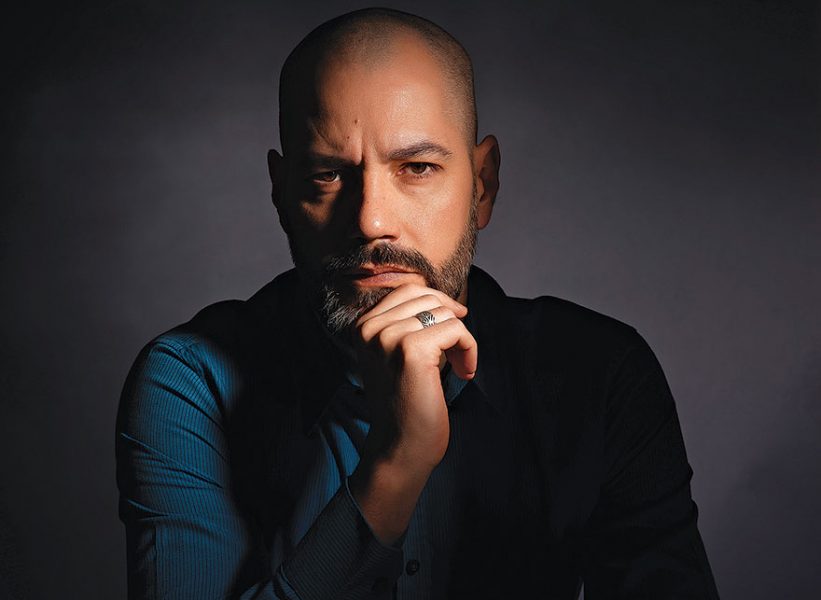
He supports the notion that the best parenting is one that implies permitting a child to question authority and to think with their head first and foremost. At the same time, he says, it is necessary to provide that child with unselfish support in whatever fulfils them and makes them happy:
“When I became a parent myself, I realised that is one of the most important parameters of good parenting. That and the feeling for when a child needs to be pushed, inspired and even forced to start something and, importantly, to finish something in their life, because that will certainly help them in the future, and when it is necessary to let them go and not to pressurise and force. That’s a terribly delicate and difficult task of every parent, but also perhaps the most important. My parents certainly knew that, and at decisive moments they made the right decisions that helped me to become what I am today. An important part of growing up has always been represented by culture and art. And they are something that has completely disappeared from the map of educating young generations today.”
My parents and aunt were popular exclusively because they were fantastic in their professions, and not because of some scandalous behaviour, affairs or anything like that
He is proud of the creative works of his parents and his aunt. PGP/RTS has just released an album of Senka’s most beautiful songs called Zaželi ja ću doći [Wish and I’ll come], and Vasil says that “every song on that album is a lesson for all singers, composers, arrangers, musicians and songwriters on how entertaining music really should sound.”
When it comes to his father he says that whatever he did, “and he did everything, by God, actor, singer, composer, arranger, poet, songwriter, screenwriter, producer, editor etc., etc., he did everything with the entirety of his being and without error.” An album of his was also just released, produced by Croatia Records under the title Makedonija pjeva [Macedonia Sings]:
“I’m personally waiting for another edition to be realised, which was recorded in the ’80s, where – in a special way and with wonderful arrangements, played by the most eminent jazz musicians of the time – he sings Macedonian folk songs that were collected by my grandfather Vasil Hadžimanov, one of the greatest ethnomusicologists in the Balkans.” He says that Bisera has always been a flawless singer and artist. Every song that’s ever been composed for her has been sung in such a special and great way that when someone dares to sing something from her repertoire it often sounds meaningless to them:
“I had my first professional performance with Bisera 30 years ago, and since then we’ve been performing together regularly. I learned a lot from her when it comes to music, just as I did from my parents. She can also boast of a wonderful new album, produced by Croatia Records-PGP/RTS, called Bisera.”
Vasil took a lot away from home, such as a value system that determined him for life. Culture as an upbringing, as respect, as tolerance for others who differ from you. Hospitality and basic manners and much more:
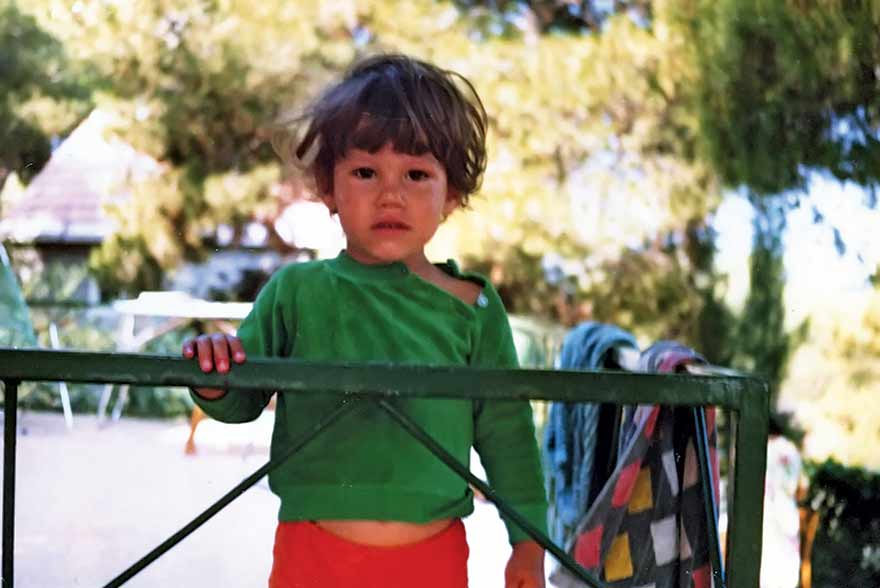
“I would like for other parents today to dedicate themselves to their children in the way my parents did. Low wages or the fast pace of life are no excuse. Devote time and attention to your children. That’s the most important task you have, then everything else.”
The two of them, Vasil and Nataša, are the parents of 20-year-old Marta, who has just started her studies at the Academy of Arts in Mannheim, Germany, in the opera department class of highly esteemed professor Snežana Stamenković, who is also head of the department at this prestigious academy. Apart from her huge talent and love I’ve been fortunate enough to play with the best all my life, and often with those who are better than me, which is always the best way to learn something new and different for music, at the age of 20 Marta already has a serious resume. At the age of 17 she landed the main role in the musical The Phantom of the Opera, which is performed at Belgrade’s Terazije Theatre, thus becoming the youngest actress in the history of this theatre, but also the youngest actress to play the role of Christine in all professional productions worldwide. Still, alongside all of that, Vasil and Nataša share great satisfaction in the fact that their daughter is primarily a very high quality young person:
“We are, nonetheless, most proud of her because she is an extremely good, honest and fair person.” And Zafir recently spoke about his son and granddaughter, stating: “Vasil is the greatest joy of my life. I even wrote a song about his birth – Žito moje [Wheat of Mine]. When I would smell him as a baby, after he was bathed, he smelt to me like fresh bread just taken out of the oven. And it occurred to me that wheat is the most important product of life. I am also overjoyed that the thread of musicality has passed down through the generations of my family. At the age of 17, Marta went independently to Terazije Theatre and beat 50 of them in the auditions for the role in the play The Phantom of the Opera. She is currently studying solo singing in Germany, in Mannheim, and she’ll receive their full scholarship. She has an incredible voice, a coloratura soprano. She is also beautiful and very much her own person. She doesn’t give up on what she’s imagined.”
I’ve been fortunate enough to play with the best all my life, and often with those who are better than me, which is always the best way to learn something new and different
When one raises a child, it is somehow inevitable for a parent to see a resemblance to their parents in their own actions; it could be said that this coincidence is inevitable: “Nataša and I certainly dedicated all our love and attention to our child, but at the same time we were careful not to make that love counterproductive and not to cause more damage through excessive attention, which can happen to anyone. My role as a father is like any father, we are involved and present, but mother is mother. Nataša definitely deserves most of the credit for the fact that Marta has matured to become an intelligent, well-mannered, good girl who always thinks for herself.”
When he was a pupil at the Branko Radičević Primary School in New Belgrade, there was a competition between the choir of his school, which was called Poletarci, and the most famous children’s choir in the former Yugoslavia, Kolibri.
They were like eternal rivals and the “battles” these two children’s choirs are still remembered:
“Kolibri was always an unassailable children’s choir in our country, and choirmaster and conductor Milica Manojlović certainly deserved the most credit for that. Our daughter had the good fortune and honour of working with Milica and being part of that choir from the age of five to twelve.
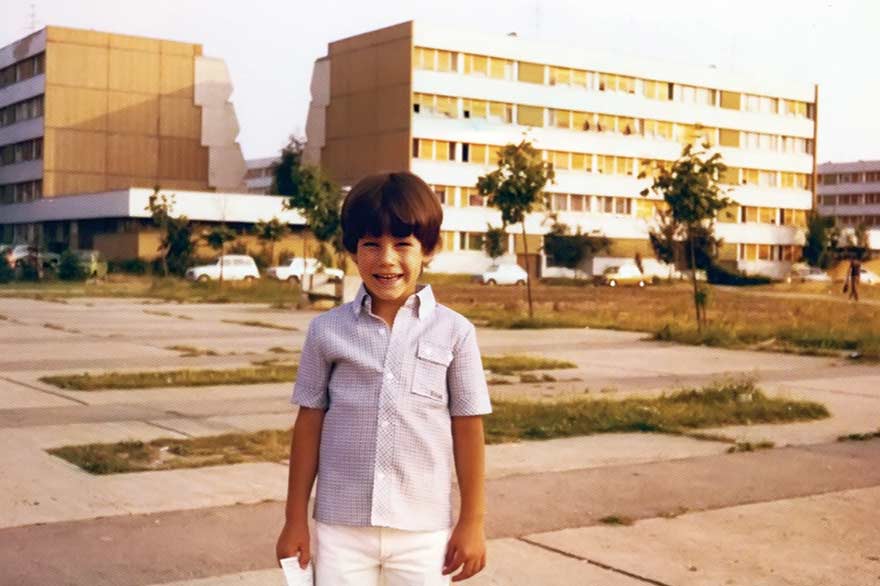
“However, thanks to my music teacher, Borika Čavdarević, a lowly school choir, Poletarci, managed to rise to the level of a professional children’s choir, and we performed with that choir at very important concerts, travelled and recorded children’s songs, with Senka and Zafir, among others. Today this choir is also brilliantly led by our godmother, Hana Vućičević, who works at the same primary school, Branko Radičević.”
Wonderful fellowship marked Vasil’s years at the Mokranjac Music School, and everything he learned there still means a lot to him even today:
“I flourished when I moved from primary school to high school. I had a few good friends in primary school, while at Mokranjac we were all inseparable from the get go. It was as if we’d found each other again, and that we’d always known and loved each other. Although I believe that the educational system in our schools is hermetic and that nothing has changed to this day, it is true that I learned an immense amount when it comes to the technique of playing the piano, thanks to my professor Ljubinka Hadzi- Jovančić, but also about music theory and solfège, which helped me greatly when it came to much more easily improving my skills in the field of jazz music and composing.”
My preparations for Berklee started as soon as I sat down at the piano for the first time, and I was then five years old! Berklee was a logical step for someone who so loved jazz music… I graduated at an accelerated pace, in three years instead of four
He was a student at Mokranjac when he had his first official concert, at Club 24 in Novi Sad.
He says that he was very nervous, but not nearly as much as he was for the piano exams at Mokranjac: “I’ve been fortunate enough to play with the best all my life, and often with those who are better than me, which is always the best way to learn something new and different. It was the same on that evening, when I shared the stage with the great Vojin Draškoci and the greatest Bisera Veletanlić. Vojin was then my mentor and he is one of the most deserving for the fact that I even chose this path that I’m still walking today.”
It is logical to ask him what his preparations were like for the world’s most prestigious and most expensive centre of the music world – Berklee College of Music – but the only answer we received is that preparations started as soon as Vasil sat down at the piano for the first time. He was five years old at the time:
“Berklee was a logical step for someone who so loved jazz music, and thanks to the scholarship, but first and foremost to my parents, I succeeded in enrolling and attending that prestigious school. I graduated at an accelerated pace, in three years instead of four, and spent another two years in America, where I learned a lot in practise that makes me the musician I am today.
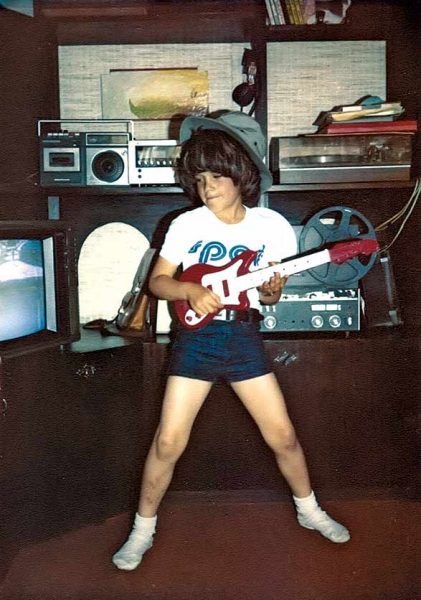
“I remember a lot of beautiful things from Berklee. From the mass of students from all over the world with whom I had the pleasure of playing, via the wonderful professors who were a crucial part of my education, all the way to the many friends I met and made there, and with whom I’m still in contact. There is also a lot that I’d like to forget. I was going through a turbulent period of my maturing while war and poverty raged in my own country, Yugoslavia. All of this led to a series of mistaken moves that I wish I hadn’t made. I certainly wouldn’t like to forget them, just in case the same mistake happens to me again.”
It might be hard to believe, but the truth is that Vasil overslept and didn’t attend his own graduation ceremony, in short, he didn’t receive his own certificate of graduation from Berklee! “That, for example, is one of the situations that I’d really like to forget,” he says today.
After his studies, Vasil considered remaining in America. During the 1990s, a decade that was so bad for life in Serbia, it would have been logical for him to stay there and try to continue his career and life in America. However, that wasn’t to be.
“Although things went in a very positive direction in New York, where I moved in 1996 (I got a job at a prestigious studio as a music programmer and composer, while at the same time I started playing with the best young team in that city full of competition), I decided to return to Belgrade. What proved decisive? Not to explain excessively, it was a matter of the heart. To the constant astonishment of the local people and confusion over my decision, I always repeat that I’ve never repented my decision to return and stay here. And from here I travel the world.”
Yugoslavia was Vasil’s homeland, and with it Macedonia, his father’s home country. “Unfortunately,” he notes, “everyone who mentions Yugoslavia today is labelled a loser and a failed nostalgic. However, if I had a choice, I would always replace all these “important” little states with one powerful Yugoslavia. I am particularly attached to Macedonia, because many good friends and colleagues of mine are from there, but also relatives who I love. I’ve had the good fortune and pleasure to share the stage with some Macedonian musicians, such as Toni Kitanovski, Martin Đakonovski, Aleksandar Petrov, Alek Sekulovski, Viktor Filipovski, Oliver Josifovski et al. And those are some of my life’s favourite projects and concerts. In Macedonia I’ve also been a guest professor at the Academy in Štip for the past eight years.”
When he isn’t playing or composing, Vasil surrenders to film. Just like in music, he loves the most varied film genres and very closely follows the work of his favourite directors and actors. He also loves books, but his concentration escapes him in these turbulent times. He is only completely present and seriously focused during the time he dedicates to composing. And playing, of course. He has a lot to read and is increasingly trying to detach himself from his smartphone and pick up a book.
Yugoslavia is my homeland… Everyone who mentions Yugoslavia today is labelled a loser and a failed nostalgic. However, if I had a choice, I would always replace all these “important” little states with one powerful Yugoslavia
Vasil has officially been on the scene for a full 30 years, and he could look back to see what he’s done over these three decades. But he doesn’t waste too much time on that, because he still has a lot to do. “My aim is always the same. I want to do something different and new every time, but also to remain consistent to myself, for my starting point always to be music that fulfils me creatively and that I want and love to do. And nothing else.
“One of the things I could certainly be satisfied with is the fact that the Vasil Hadžimanov Band still exists and still creates high quality creative music, despite the many factors that crop up every day and would seem to cause the very opposite to happen. After seven albums and an eighth being prepared, countless concerts, numerous awards and success in the 25 years of the band’s existence, it is clear that all this happened exclusively thanks to the tireless work of
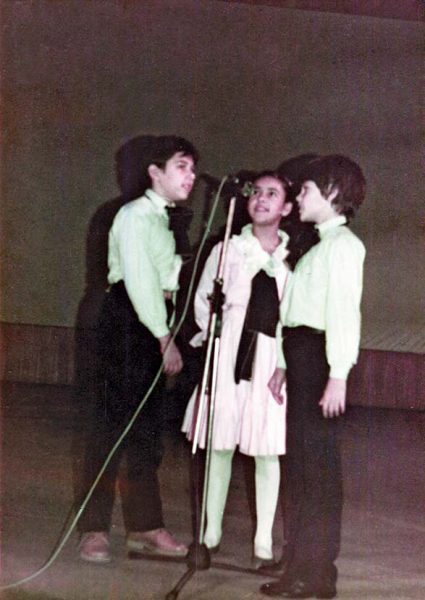
Nataša and myself, and then all other members and associates of this band. Too many problems exist that can influence a person to give up their dream and succumb to the pressures of the majority. I think our greatest success lies precisely in the fact that, despite all the adversity, we remain consistent and fearless in our mission of creating and spreading good music.
“However much you plan, in this business and this territory, it is impossible to know what awaits you tomorrow. And that’s especially so today, while there’s a world pandemic of a deadly virus whose biggest enemies are musicians who play in front of an audience. Luckily, jazz has taught us to live according to the system of coping and improvising, and we’ve long since been ready for every possible surprise.”
An award named after Vojin Draškoci, the jazz musician, double-bassist, composer, arranger and music tutor, was established in 2013. Vasil has received that award, but also many others, while the most recent great accolade he received cheered him up at the beginning of last year – coming in the form of the 41st traditional award given by Jazz stations from Los Angeles, which proclaimed him the Best Jazz Musician on Electric Piano in 2019.
“The Vojin Draskoci Award, understandably, means the most to me, because it bears the name of my mentor and an overall wonderful man. Every award and praise has meaning for me, of course, especially this latest. It testifies to the fact that we found ourselves on such a prestigious list, among the best, and that we live in Belgrade, that it comes from great experts of music who’ve spent years dealing in the most serious way with the type of music that I’ve been creating all my life. It is very important when someone of that calibre shows you that you’re on the right track. Perhaps that’s the most important thing of all. I think that many people don’t understand how difficult it is to deal with creative or artistic music in this area and still receive such worldwide recognition.”